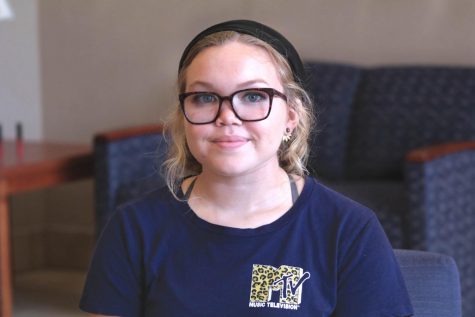Yik Yak on college campuses
October 28, 2021
Yik Yak is a trending social media platform popular on college campuses, but there are concerns about cyberbullying and offensive content that is posted.
Yik Yak is a social media platform that shows anonymous posts within a five-mile radius of the user.
“Since everything is anonymous, you don’t know what’s true and what’s false,” Yasmine Bender said.
Bender said that she uses Yik Yak frequently and the content she sees ranges from talking about parties to posts about who is best looking, most athletic, or best in bed. She also said she comes across cyberbullying that is concerning when she sees posts that are blatantly making fun of people.
Teresa Morales, associate professor in the communication arts department, said that sitting behind a computer screen takes away the act of responsibility for one’s words. She said the appeal of Yik Yak is free speech.
“In a society that’s supposed to value free speech, there is a greater incidence of not valuing free speech and so voices are then withheld or squashed, or they’re hampered by others who then say that’s not nice to say or that’s not polite to say,” Morales said.
Anytime people are disallowed a voice there will be a way for that voice to be heard in the U.S., so Yik Yak being anonymous gives people a way to let those sentiments out, Morales said.
“There are some nice things in there, but usually it’s kind of nasty,” Bender said.
Bender said that she thinks users are speaking before they think about how their words will affect others and that she believes social media in general can be detrimental to mental health.
“I hope and pray that the people being talked about don’t have Yik Yak,” Bender said.
Morales also said she thinks social media should be deleted when it becomes negative for users. Negative comments are not an issue when they are not read or seen by users.
“Young people seem to think that others care about their opinions and find themselves terribly important and need to be heard,” Morales said.
Bender said that students should go to the counseling center and use that free service rather than cyberbullying others on social media.
“We don’t need to be taking out our feelings on an anonymous site to be angry at people, or just to attack them,” Bender said. “I think you need to address the root of your problem before you attack somebody.”
Bender said that she tries to downvote negative content she comes across so less people see it.







